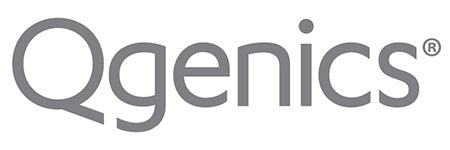According to the Centers for Disease Control and Prevention (CDC),
“Blood pressure is the pressure of blood pushing against the walls of your arteries. Arteries carry blood from your heart to other parts of your body.
“Blood pressure normally rises and falls throughout the day, but it can damage your heart and cause health problems if it stays high for a long time. Hypertension, also called high blood pressure, is blood pressure that is higher than normal.
The CDC provides some important points:
- Having hypertension puts you at risk for heart disease and stroke, which are leading causes of death in the United States.2
- In 2018, nearly half a million deaths in the United States included hypertension as a primary or contributing cause.2
- Nearly half of adults in the United States (108 million, or 45%) have hypertension defined as a systolic blood pressure ≥ 130 mm Hg or a diastolic blood pressure ≥ 80 mm Hg or are taking medication for hypertension.3
- Only 1 in 4 adults (24%) with hypertension have their condition under control.3
- About half of adults (45%) with uncontrolled hypertension have a blood pressure of 140/90 mm Hg or higher. This includes 37 million U.S. adults. 3
- High blood pressure was a primary or contributing cause of death for more than 494,873 people in the United States in 2018.2”
Hypertension is often referred to as a “silent killer” because many people are not aware they suffer from high blood pressure.
Symptoms of High Blood Pressure
Given the above, it’s important to recognize the symptoms of high blood pressure, and take action to address high blood pressure, when it occurs:
- Severe headaches
- Fatigue or confusion
- Vision problems
- Chest pain
- Difficulty breathing
- Irregular heartbeat
- Blood in the urine
- Pounding in the chest, neck or ears.
Primary Causes of High Blood Pressure
The primary causes of high blood pressure are:
OBESITY – being overweight is directly linked to high blood pressure
DIET – Sodium, sugar and fat laden diets are tied into high blood pressure.
SEDENTARY LIFESTYLE – Long term lack of exercise leads to weight gain and undue pressure on the heart.
KIDNEY DISEASE – This can be triggered when the adrenal glands (small pea shaped glands that are on top of the kidneys) secrete too much of the hormone cortisol, which elevates the “fight or flight response” and increases blood pressure.
DIABETES – In people with elevated blood glucose (sugar) levels, high blood pressure is prevalent. High blood pressure can also be caused by taking certain medications to manage diabetes.
SIDE EFFECT OF MEDICATIONS – According to Fitness Magazine, some of the most common medications which may increase blood pressure are “non-steroidal anti-inflammatory drugs, decongestants, and hormonal birth control.” These medications may cause high blood pressure by constricting your blood vessels and/or causing water retention.
STRESS – Excess stress has been linked to a wide variety of health conditions including high blood pressure and heart disease. Stress causes your adrenal glands to pump out blood pressure increasing hormones and on top of that your body’s natural “fight or flight” response causes your blood vessels to contract.
NUTRIENT DEFICIENCIES – High blood pressure can also occur due to insufficient dietary intake of certain nutrients.
Key Nutrients to Control Blood Pressure
Some of the key nutrients to control blood pressure are:
POTASSIUM, which helps balance the sodium in the cells.
VITAMIN D, which may affect an enzyme produced by your kidneys that affects blood pressure.
CALCIUM & MAGNESIUM An insufficient intake of calcium and magnesium may cause an increase in blood pressure.
With knowledge of what can cause high blood pressure, you have the ability to make changes that could lower your blood pressure, and decrease your risk of serious health issues.
Lifestyle and dietary changes can go a long way to improving your health. Eating a nutrient-rich diet of more natural, plant-based foods is a great way to give the body the nutrition it needs to improve health.

